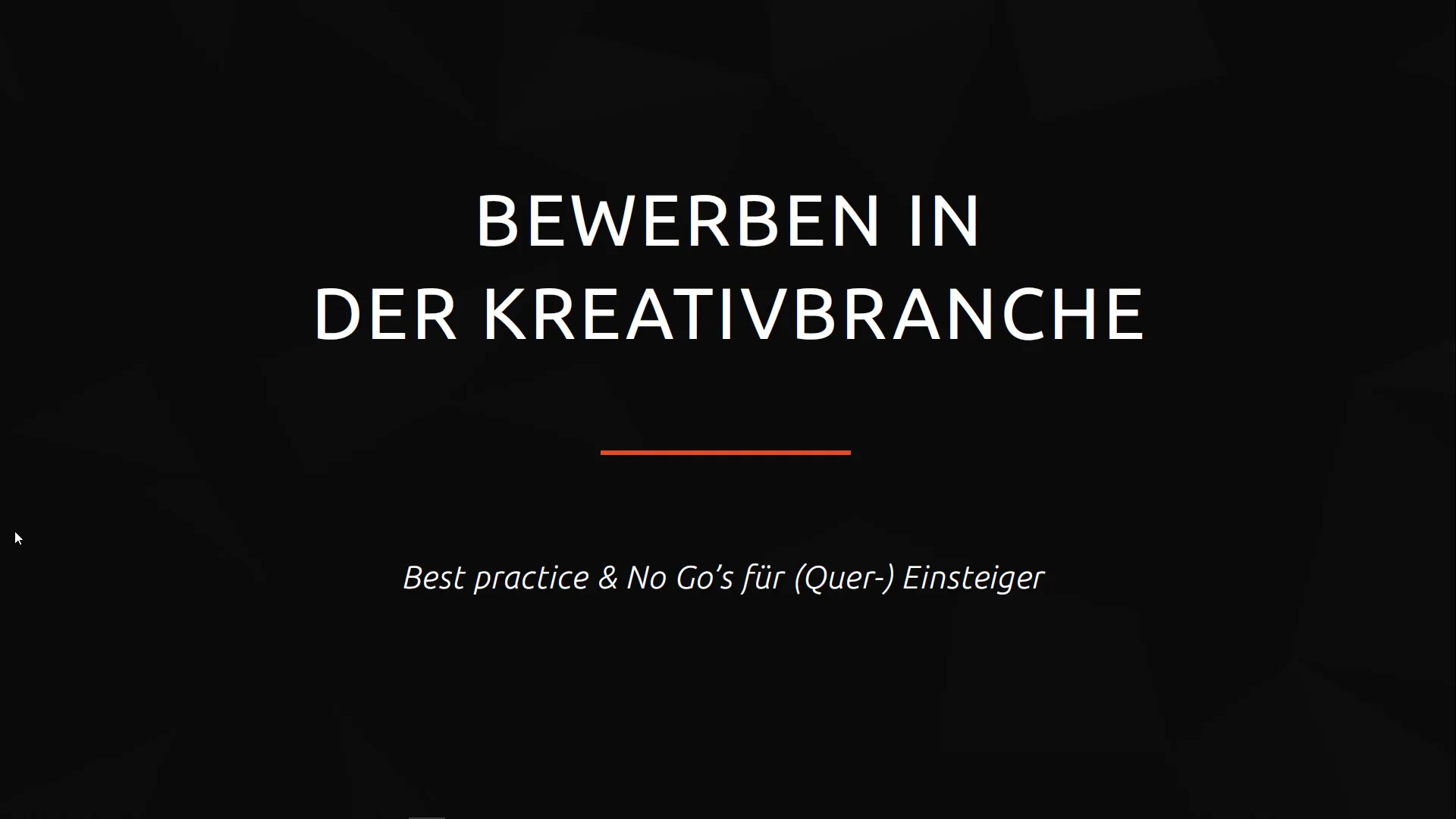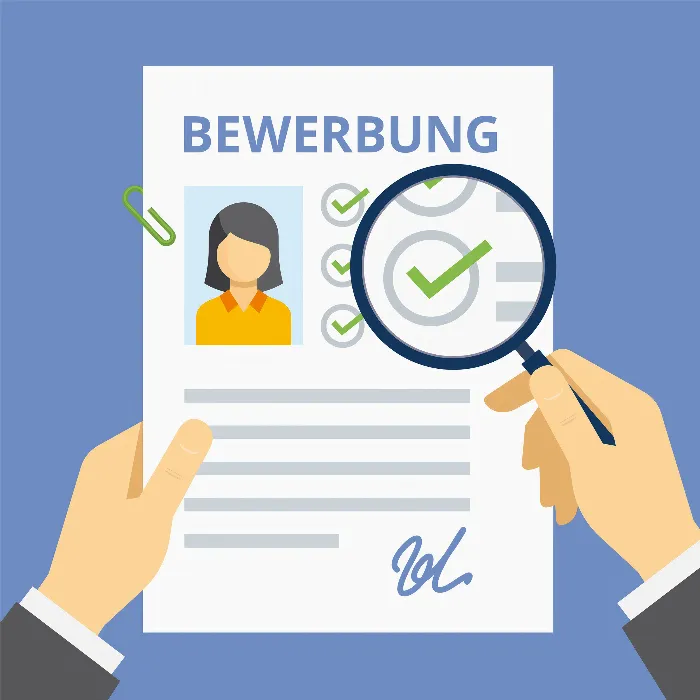Applications in the creative industry are often a challenge. The competition is fierce, and many applicants fail already in the first round. To succeed in this creative environment, it is crucial not only to know your own skills but also to know how to effectively present yourself. In this guide, you will receive valuable tips and strategies to increase your chances of landing the desired position and establishing yourself as a brand. Let's get started!
Key takeaways
- Only 10% of applicants are even invited to an interview.
- 85% of jobs are filled through personal networks, making relationships in the industry crucial.
- You are your own brand ambassador; pay attention to how you are perceived online and offline.
- The Myers-Briggs Type Indicator can give you valuable insights about your strengths and help you find the right career path.
- Your own successes and experiences from your life are useful stories for your personal pitch.
Step-by-step guide
1. Understand the application process in the creative industry
Before you create your application, it is useful to know what the application process looks like. In the creative industry, employers look not only at your qualifications but also at your personality and how well you fit into the team. A good understanding of these factors will help you tailor your application.

2. Reflect on yourself
Before diving into the application process, take time to think about yourself. What are your strengths? What activities bring you joy? Consider what kind of work you truly enjoy doing and in what environment you feel comfortable. This self-reflection is important to leave an authentic impression.
3. Use the Myers-Briggs Type Indicator
The Myers-Briggs Type Indicator can help you better understand your strengths and weaknesses and identify the areas where you can work best. This personality test identifies 16 different types and helps you recognize which professions are best suited for you. Consider the results when choosing your career.
4. Create your personal pitch
Your personal pitch is a brief summary of your skills and experiences. List all relevant competencies and successes that distinguish you. A relatable story is particularly important here. Think of engaging and relevant stories from your life that highlight your qualifications.
5. Practice your pitch
A well-prepared pitch is of little use if you're not confident in how you present it. Practice saying your pitch out loud, perhaps in front of friends or family members. Pay attention to your tone, body language, and the way you express yourself. Feedback is crucial here, so don't hesitate to ask for help.
6. Be your own brand ambassador
You are already your own brand ambassador. Check what can be found online about you. Type your name into Google and see what information comes up. Ensure that you are presented in the professional online world as you wish. Review your social media profiles if necessary and optimize them.
7. Find the right job listings
You can find job listings not only on job portals but also directly on the company websites of the firms you'd like to impact. Smaller and medium-sized companies often have a need for new employees, so don't hesitate to inquire directly.
8. Contact people in your industry
Networking is crucial in the creative industry. Attend industry meetings to connect with other creatives. Ask questions and actively read their contributions on social networks. Comment on the pages of companies that interest you to appear on their radar.
Summary – Applying in the Creative Industry: Become a sought-after brand ambassador
Applying in the creative industry requires more than just a good cover letter. Self-reflection, utilizing the Myers-Briggs Type Indicator, a well-rehearsed personal pitch, and active networking are essential steps to finding your place in the industry. Get ready to convince entrepreneurs and creative minds of your capabilities!
Frequently Asked Questions
What is the Myers-Briggs Type Indicator?The Myers-Briggs Type Indicator is a personality test that helps you recognize your strengths and weaknesses.
How do I find jobs in the creative industry?You can find jobs on company websites, job boards, and through personal networking at industry events.
Why is self-reflection important for applications?Self-reflection helps you identify your strengths and interests to apply more authentically and purposefully.
How important is networking in the creative industry?Networking is extremely important as many jobs are filled through personal relationships.
How can I improve my personal pitch?Practice your pitch out loud, get feedback from others, and pay attention to how you present yourself.

